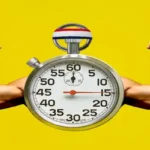Protein is essential for building muscle, losing weight, and maintaining overall health. But what is the best source of protein? From animal-based to vegetarian and vegan protein sources, this guide explores the top protein-rich foods for every need—whether you’re into bodybuilding, on a weight loss journey, or simply eating healthier.
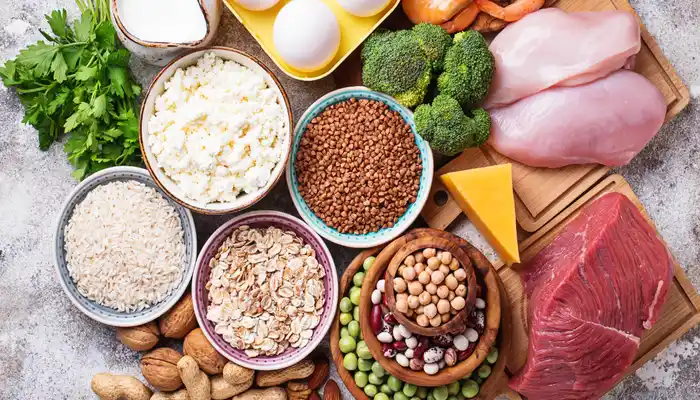
What is Protein?
Protein is a vital macronutrient made up of amino acids, which are the building blocks of life. It plays a key role in muscle repair, immune function, enzyme production, and hormone regulation. Found in both animal and plant foods, protein sources are essential for growth, energy, and maintaining overall health.
Role of Protein in Human Body
Protein is a fundamental macronutrient required for the growth, maintenance, and repair of body tissues. It is made up of amino acids, which serve as the building blocks for muscles, skin, bones, and internal organs.
- Muscle Repair and Growth
After physical activity or injury, protein helps rebuild and strengthen muscle fibers. This is especially crucial for athletes and individuals aiming for muscle gain or bodybuilding. - Enzyme and Hormone Production
Many enzymes in the body are proteins that aid digestion, energy metabolism, and other vital processes. Proteins also help produce hormones such as insulin, which regulate blood sugar and metabolic activities. - Immune System Support
Antibodies are specialized proteins that detect and neutralize harmful pathogens like viruses and bacteria, making protein critical for immune defense. - Transport and Storage
Proteins such as hemoglobin transport oxygen in the blood, while others help carry vitamins and minerals to where they’re needed most. - Cellular Structure and Skin Health
Structural proteins like collagen and keratin are essential for maintaining the strength and elasticity of skin, hair, and nails. - Weight Management
High-protein foods increase satiety and reduce hunger hormones, making protein important for weight loss and long-term appetite control.
You may also like: What is Best Time to Workout? Find Your Ideal Training Time
Top 10 High-Protein Foods (Vegetarian & Non-Vegetarian)
Finding the best source of protein depends on your diet, goals, and preferences. Whether you’re focused on muscle building, weight loss, or general wellness, including high-protein foods is essential. This list includes both vegetarian protein sources and non-vegetarian protein sources, with each food’s protein content per 100g and its key health benefits.
1. Eggs
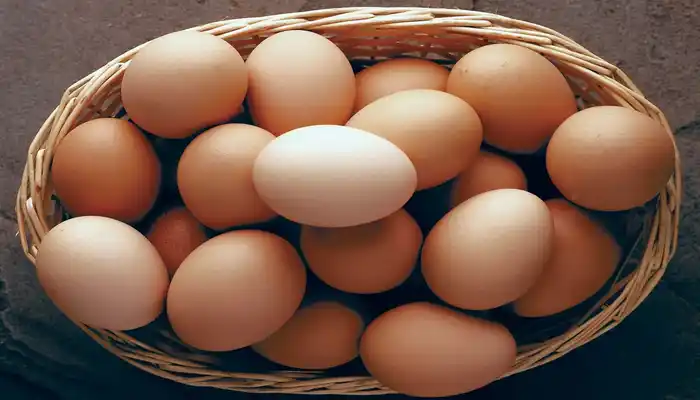
- Protein content: ~13g per 100g
- Type: Non-vegetarian
- Eggs are one of the best sources of protein for bodybuilding and overall health. They’re rich in all nine essential amino acids, making them a complete protein source. Include them in protein foods for breakfast for muscle recovery and sustained energy.
2. Chicken Breast

- Protein content: ~31g per 100g
- Type: Non-vegetarian
- Chicken is a lean protein source, ideal for muscle gain and weight loss. It’s a top choice among athletes for its high protein and low fat profile. It ranks high among the best source of protein in non veg diets.
3. Paneer/Cottage Cheese
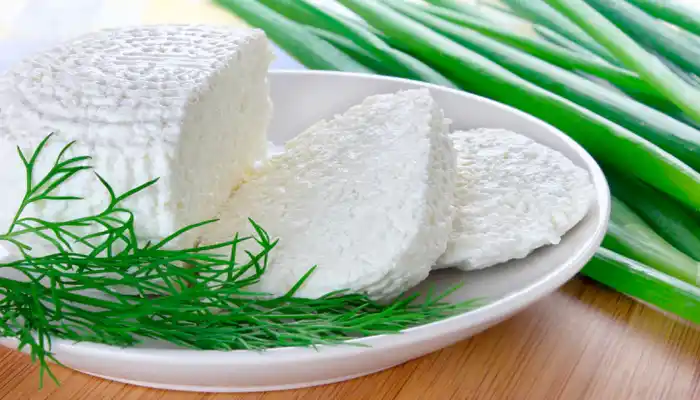
- Protein content: ~18g per 100g
- Type: Vegetarian
- A staple in Indian diets, paneer is among the best vegetarian protein sources. It’s calcium-rich and helps in muscle repair. Great for those seeking protein-rich foods at home.
4. Greek Yogurt/Curd/Dahi
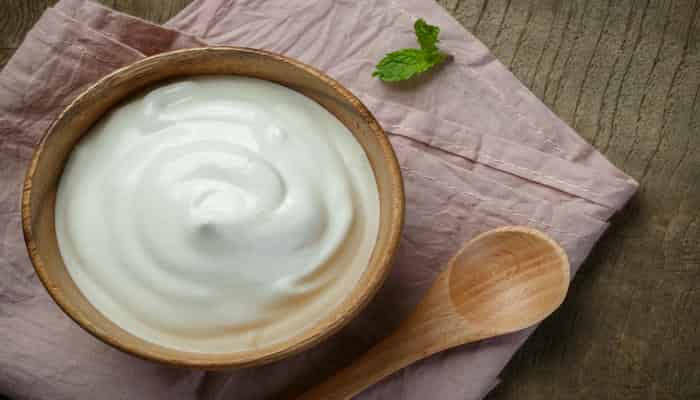
- Protein content: ~10g per 100g
- Type: Vegetarian
- Greek yogurt is thick, creamy, and packed with protein. It supports digestion and muscle maintenance, making it one of the best protein sources for women and men looking for easily digestible source of protein with Probiotic benefits.
5. Lentils/Dal
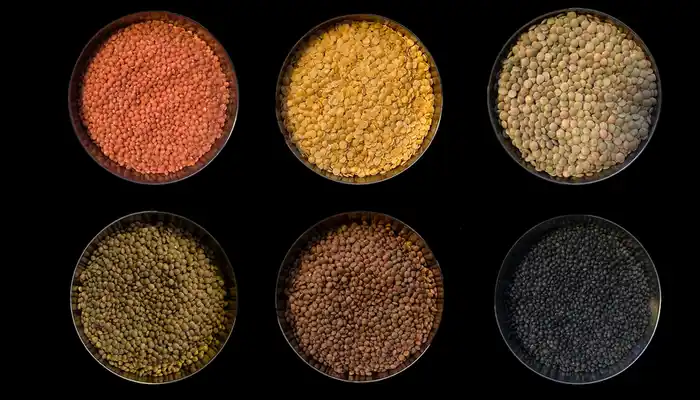
- Protein content: ~9g per 100g (cooked)
- Type: Vegetarian
- Lentils are affordable and among the cheapest protein sources for vegetarians. They are high in fiber and iron, excellent for protein foods list for weight loss and heart health.
6. Soya Chunks
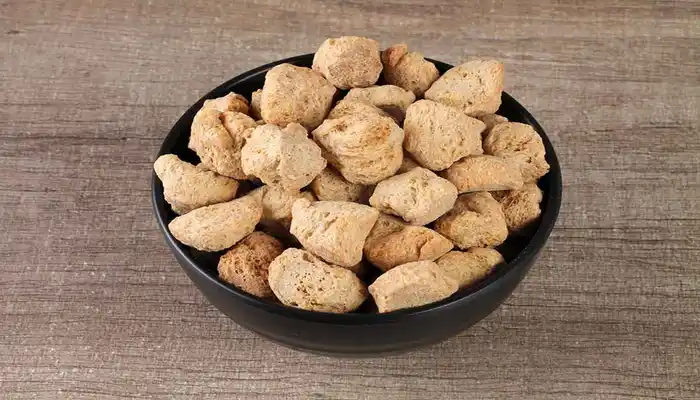
- Protein content: ~52g per 100g (dry)
- Type: Vegan
- Soya chunks are an excellent plant protein source, ideal for muscle building. They’re a high protein source and mimic the texture of meat, making them great for non-meat protein sources.
7. Quinoa
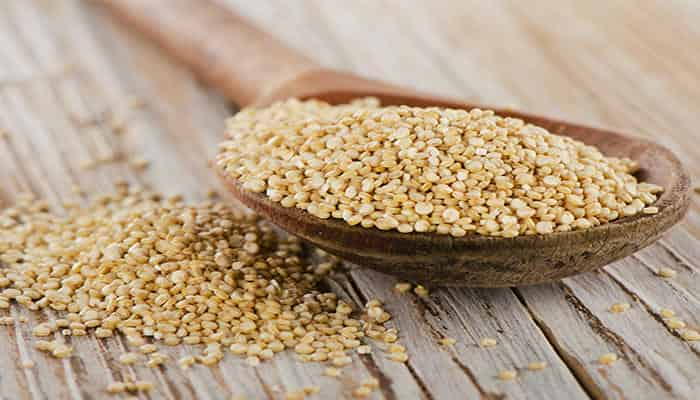
- Protein content: ~14g per 100g (dry)
- Type: Vegan
- Quinoa is a rare plant-based complete protein. It’s gluten-free, rich in iron and magnesium, and supports weight loss, making it one of the best vegan protein sources.
8. Fish (Tuna/Salmon)
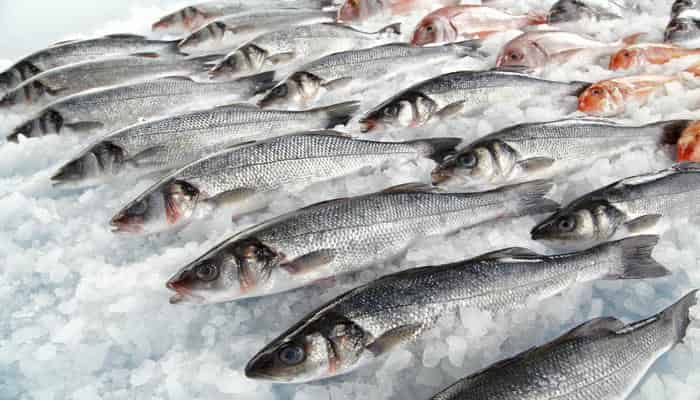
- Protein content: ~25–30g per 100g
- Type: Non-vegetarian
- Fatty fish like salmon provide omega-3s along with protein. It’s a lean protein source, ideal for muscle gain, brain function, and heart health. A top protein source for men and athletes.
9. Peanuts and Peanut Butter
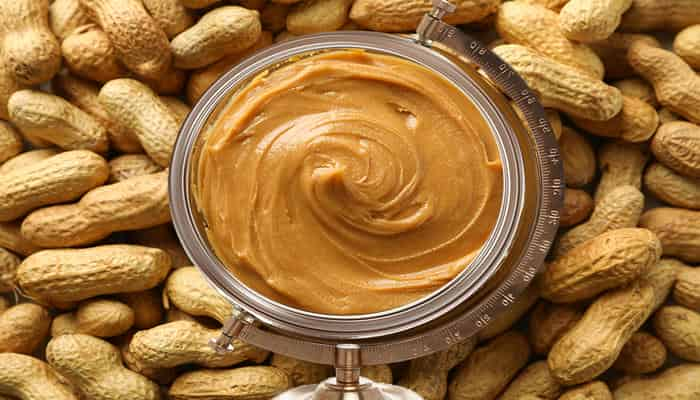
- Protein content: ~25g per 100g
- Type: Vegetarian
- A tasty and easy protein source, peanuts are rich in healthy fats and protein. Great for high-protein vegetarian diets, snacks, or smoothies.
10. Chickpeas/Chana
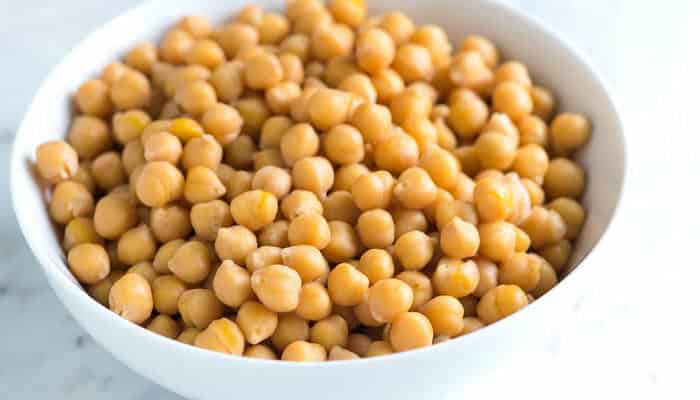
- Protein content: ~19g per 100g (dry)
- Type: Vegetarian
- Chickpeas are rich in protein, fiber, and complex carbs. They’re a vegetarian protein source that supports weight loss and muscle repair.
You may also like: The Best Time for Pre-Workout Meals: What to Eat and When
Summary Chart: Highest Protein Foods per 100g
| Food Item | Protein (g/100g) | Type |
|---|---|---|
| Soya Chunks | 52 | Vegan |
| Chicken Breast | 31 | Non-Veg |
| Fish (Tuna) | 25–30 | Non-Veg |
| Peanuts | 25 | Vegetarian |
| Paneer | 18 | Vegetarian |
| Quinoa | 14 | Vegan |
| Eggs | 13 | Non-Veg |
| Greek Yogurt | 10 | Vegetarian |
| Lentils (Dal) | 9 | Vegetarian |
| Chickpeas | 19 (dry) | Vegetarian |
Best Protein Sources for Muscle Building and Bodybuilding
Protein is crucial for muscle growth, repair, and overall bodybuilding success. Whether you’re focusing on muscle gain or body composition, choosing the right protein sources is essential. Below are some of the best protein-rich options for bodybuilding:
- Chicken Breast: A lean, complete protein source, great for muscle recovery and fat loss.
- Eggs: Rich in high-quality protein and essential amino acids, promoting muscle repair.
- Fish (Salmon, Tuna, Mackerel): Excellent for both protein and healthy fats, ideal for recovery.
- Paneer (Cottage Cheese): High in casein, which aids muscle repair and prevents muscle breakdown overnight.
- Whey Protein Powder: Fast-digesting and highly effective for post-workout recovery.
- Soya Chunks: A top plant-based protein, great for muscle building in vegan diets.
- Peanuts and Peanut Butter: Provide a good protein-to-fat ratio for energy and muscle mass.
- Quinoa: A complete plant-based protein that helps with muscle repair and energy.
Tips for Maximizing Muscle Growth
- Aim for 1.6–2.2g of protein per kg of body weight daily.
- Split protein intake into multiple meals to sustain muscle repair.
- Include protein-rich foods in every meal, especially post-workout and before bed.
Best Protein for Men vs Women: Is There a Difference?
When it comes to protein intake, there are subtle differences in the needs of men and women, largely due to differences in muscle mass, metabolism, and hormonal levels. While the basic function of protein remains the same for both—muscle repair, growth, immune function, and overall health—there are a few key points to consider when choosing the best source of protein based on gender.
Protein Needs: Men vs Women
- Men: Due to higher muscle mass, men generally require more protein to support muscle growth and repair. For muscle gain or bodybuilding, men often need between 1.6–2.2g of protein per kg of body weight per day.
- Women: Women, having lower muscle mass on average, typically need less protein, around 1.2–2.0g per kg of body weight for muscle growth and repair. However, women may have higher requirements during pregnancy, lactation, or menstrual cycles.
Protein Requirements for Different Goals
- Muscle Building:
Both men and women can benefit from high-protein foods like chicken, eggs, and whey protein to maximize muscle growth. However, men may have higher protein needs due to their increased muscle mass. - Weight Loss:
Protein is crucial for weight loss for both genders, as it promotes satiety and maintains muscle mass. Women may benefit from plant-based protein sources like quinoa, tofu, and lentils to help with appetite control while staying within their caloric limits.
Best Protein Sources for Men
- Animal-Based Proteins: Chicken breast, fish, eggs, and whey protein are ideal for men, supporting muscle building and enhancing recovery.
- High-Protein Snacks: Foods like Greek yogurt and protein shakes are quick and efficient options to meet daily protein goals.
Best Protein Sources for Women
- Plant-Based Proteins: Women may prefer vegetarian protein sources such as lentils, quinoa, and tofu. These sources are rich in fiber and other nutrients that support digestive health and weight management.
- Dairy-Based Proteins: Cottage cheese (paneer) and Greek yogurt are great options for women, offering both protein and calcium, which supports bone health.
Key Differences
- Caloric Requirements: Men generally have higher caloric requirements than women, which translates into higher protein needs. However, women can still achieve their muscle-building goals with the appropriate protein sources like soy, beans, and lean meats.
- Hormonal Impact: Hormones like estrogen and progesterone can influence protein metabolism in women, making it essential to adjust protein intake during different phases of the menstrual cycle.
Can Men and Women Share the Same Protein Sources?
Absolutely! Both genders can consume the same protein-rich foods, but the portion sizes and total protein intake may vary. It’s important to tailor your diet based on your individual goals (e.g., muscle gain, weight loss, or general health) and body type.
Protein plays a crucial role in a child’s growth and development. It supports the building of muscles, tissues, enzymes, and hormones. Since children are constantly growing, they need adequate protein for optimal physical and mental development. The best source of protein for kids varies based on dietary preferences, but certain options stand out for their nutrient density and ease of consumption.
Protein Requirements for Kids
The protein requirements for children depend on their age, weight, and activity level. On average:
- Children aged 1-3 years need about 13g of protein per day.
- Children aged 4-8 years require around 19g of protein per day.
- Children aged 9-13 years need 34g of protein per day.
These needs increase during periods of growth spurts or higher physical activity. The best approach is to include a variety of protein sources in their meals to ensure they’re getting enough of this essential macronutrient.
Best Protein Sources for Kids
- Lean Meat (Chicken, Turkey, Beef)
- Eggs
- Dairy (Milk, Cheese, Yogurt)
- Peanut Butter
- Legumes (Beans, Lentils, Chickpeas)
- Tofu
- Quinoa
- Protein-Fortified Foods (Cereal, Bars, Shakes)
Benefits of Protein for Kids
- Growth and Development: Protein is essential for the growth of muscles, tissues, and organs in children. It supports overall physical and cognitive development.
- Immune Function: Protein helps produce antibodies, ensuring a healthy immune system and reducing the risk of infections.
- Energy: Protein helps sustain energy levels throughout the day, keeping children active and engaged in school and play.
Protein Tips for Kids
- Make protein-rich foods fun by presenting them in appealing ways (e.g., making smiley faces with eggs, or offering yogurt with fruit).
- Aim to include a protein source in each meal to ensure consistent nutrient intake.
- If your child is a vegetarian or vegan, combine plant-based proteins (e.g., beans + rice or quinoa + tofu) to ensure they get all essential amino acids.
You may also like: Ultimate Guide to Creatine: Benefits, Side Effects, and Types
FAQs (Frequently Asked Questions)
The best source of protein depends on your dietary needs. For non-vegetarians, eggs, chicken breast, and fish are excellent choices. For vegetarians, lentils, tofu, and paneer are among the best. Understanding what is the best source of protein for your body helps you reach health and fitness goals effectively.
For humans, complete protein sources like eggs, dairy, fish, and soy are considered the best. These foods provide all essential amino acids. When deciding what is the best source of protein for humans, it’s important to balance plant and animal options depending on personal diet preferences.
The best source of protein for muscle building includes lean meats, whey protein, tofu, and legumes. These help with muscle recovery and growth. If you’re wondering what is the best source of protein for muscle building, focus on high-quality, complete proteins with a good amino acid profile.
The best source of protein for vegetarians includes paneer, soy, lentils, chickpeas, and quinoa. These are complete or near-complete proteins, making them suitable for daily needs. If you’re exploring what is the best source of protein for vegetarians, look for varied plant-based foods to cover all essential amino acids.
For bodybuilding, the best source of protein includes whey isolate, eggs, chicken, and tofu. These proteins support hypertrophy and recovery. Understanding what is the best source of protein for bodybuilding is crucial for increasing lean muscle mass and reducing muscle breakdown post-workout.
The best source of protein for men includes meat, eggs, dairy, and plant-based options like tofu and lentils. Protein supports testosterone levels and lean muscle growth. When considering what is the best source of protein for men, choose nutrient-dense options that match your fitness level and goals.
The best source of protein for women includes eggs, yogurt, soy, legumes, and nuts. These help maintain lean mass, hormonal balance, and metabolism. If you’re trying to identify what is the best source of protein for women, focus on sources that also offer calcium and iron.
The best source of protein in non veg diets includes chicken breast, fish (like salmon and tuna), eggs, and lean beef. These are complete proteins with high bioavailability. If you’re aiming to build muscle or lose fat, the best source of protein in non veg options offers excellent results.
For non vegetarians, the best protein sources are eggs, poultry, fish, and dairy. These foods contain all essential amino acids. Choosing the best source of protein in non vegetarians ensures faster muscle recovery and better nutrient absorption for active individuals.
The best source of protein for kids includes milk, eggs, yogurt, cheese, and legumes. These foods support growth, immune function, and brain development. If you’re a parent, make sure to offer the best source of protein for kids daily through balanced, tasty meals.
The best source of protein for weight loss includes egg whites, chicken breast, Greek yogurt, tofu, and lentils. These low-fat, high-protein foods help preserve muscle while burning fat. For sustainable fat loss, always include the best source of protein for weight loss in your daily meals.
At home, the best source of protein includes eggs, milk, paneer, peanuts, lentils, and boiled chickpeas. These options are affordable, easy to prepare, and rich in nutrients. If you’re meal prepping, focus on the best source of protein at home to meet daily protein goals.
High-protein foods vegetarian diets include paneer, tofu, lentils, chickpeas, soybeans, and quinoa. These plant-based options offer excellent protein content. If you’re following a meat-free plan, these high-protein foods for vegetarians support muscle growth, weight control, and overall nutrition.
Yes! A protein foods list for weight loss should include Greek yogurt, boiled eggs, lentils, tofu, cottage cheese, and lean cuts of meat (if non-vegetarian). When planning meals, having a protein foods list for weight loss helps manage appetite and maintain muscle during fat loss.
The top 10 protein foods include eggs, chicken breast, Greek yogurt, cottage cheese, lentils, tofu, chickpeas, quinoa, tuna, and whey protein. Whether you’re a vegetarian or non-vegetarian, choosing from the top 10 protein foods ensures quality nutrition and complete amino acid profiles.
Yes, many nutrition sources provide a highest protein foods chart listing items per 100g. Common foods on such charts include whey isolate, chicken breast, and soybeans. Using a highest protein foods chart helps you compare options effectively for building muscle or losing fat.
The best protein sources for muscle gain are whey protein, lean meats, tofu, soy, eggs, and cottage cheese. These foods provide essential amino acids. For effective results, include the best protein sources for muscle gain across your meals and post-workout nutrition.
Ideal protein foods for breakfast include eggs, Greek yogurt, paneer, oats with protein powder, and tofu scramble. Including protein foods for breakfast helps stabilize blood sugar and supports muscle maintenance throughout the day.
The highest protein foods per 100g include whey isolate (~90g), chicken breast (~31g), tuna (~29g), soybeans (~36g), and paneer (~20g). Tracking the highest protein foods per 100g helps in meeting daily protein targets accurately.
Yes, while fruits are not primary protein sources, some protein-rich fruits include guava, blackberries, jackfruit, and avocados. These protein-rich fruits can supplement your diet but should be paired with other higher-protein foods for complete nutrition.
The best protein sources include eggs, chicken, tofu, lentils, and dairy. Whether you’re following a plant-based diet or eating animal products, choosing the best protein sources ensures your body gets all essential amino acids and supports muscle repair and metabolism.
Reliable vegetarian protein sources include paneer, chickpeas, lentils, soy products, and quinoa. These vegetarian protein sources are high in nutrients and can replace meat in most meals. A vegetarian protein sources chart can help you plan meals more efficiently.
The most effective vegan protein sources are lentils, soybeans, tempeh, seitan, chickpeas, and quinoa. These vegan protein sources are also plant based protein sources, offering complete or nearly complete amino acid profiles for a balanced diet.
Yes, non meat protein sources include legumes, tofu, seitan, dairy (for vegetarians), and grains like quinoa. These non meat protein sources are especially helpful for those who avoid animal products but still want high protein intake.
The best plant protein sources include lentils, soy, peas, chickpeas, hemp seeds, and oats. These plant protein sources are also great plant based protein sources and are rich in fiber, iron, and other micronutrients essential for vegans and vegetarians.
You can identify the best vegan protein sources by looking for complete protein options like quinoa, soy, and buckwheat. The best vegan protein sources are versatile, nutritious, and easily digestible, making them suitable for muscle building and weight management.
A vegetarian protein sources chart typically lists foods like lentils, tofu, paneer, quinoa, and legumes with their protein content per 100g. A vegetarian protein sources chart is useful for meal planning and hitting protein goals on a vegetarian diet.
Some of the cheapest protein sources include peanuts, chickpeas, eggs, milk, and soya chunks. These cheap protein sources offer excellent protein per rupee, making them perfect for budget-friendly diets. Cheapest protein sources can still provide high nutritional value.
Yes, lean protein sources include chicken breast, fish, egg whites, Greek yogurt, tofu, and legumes. These lean protein sources are low in fat and calories, ideal for those aiming to lose fat while preserving muscle mass.
Complete protein sources contain all 9 essential amino acids. Animal-based proteins and a few plant options like soy, quinoa, and buckwheat qualify. Including complete protein sources ensures muscle recovery, hormone production, and overall cellular function.
A simple protein sources list includes: eggs, chicken, paneer, lentils, tofu, soya, quinoa, milk, and legumes. Whether you’re vegetarian or not, keeping a diverse protein sources list helps balance your diet and improve protein absorption.
The best vegetarian protein sources for athletes include tofu, paneer, Greek yogurt, lentils, and quinoa. These best vegetarian protein sources provide ample protein and nutrients for muscle repair and athletic performance.
High protein sources include eggs, chicken, tuna, whey, paneer, lentils, and tofu. These high protein sources deliver over 15–30g of protein per 100g and support muscle gain, metabolism, and satiety.
Low fat protein sources include egg whites, chicken breast, low-fat dairy, tofu, and legumes. These low fat protein sources are perfect for cutting fat while maintaining lean muscle during weight loss or a fitness phase.
Yes, easy protein sources include boiled eggs, Greek yogurt, roasted chickpeas, protein bars, milk, and protein shakes. These easy protein sources require little to no prep and are perfect for students and professionals with tight routines.
Top protein sources for vegans include soy products, lentils, beans, chickpeas, hemp seeds, and quinoa. These protein sources for vegans are nutrient-dense and can be included in various meals and snacks.
Plant based protein sources are often lower in saturated fat and higher in fiber, but may lack some essential amino acids. Combining various plant based protein sources like legumes and grains ensures balanced nutrition.
No, cheap protein sources like lentils, peanuts, and eggs are still highly effective. Cheap protein sources can support muscle gain and fat loss when consumed in the right quantity and paired with other nutrients.
No, protein sources vary in amino acid profiles, digestibility, and nutrient content. Complete protein sources are generally higher in quality. However, a mix of various protein sources can meet your daily needs efficiently.
Yes, you can build muscle with vegetarian protein sources like tofu, lentils, dairy, and quinoa. When planned correctly, high protein sources from plant foods support muscle growth and strength gains effectively.
